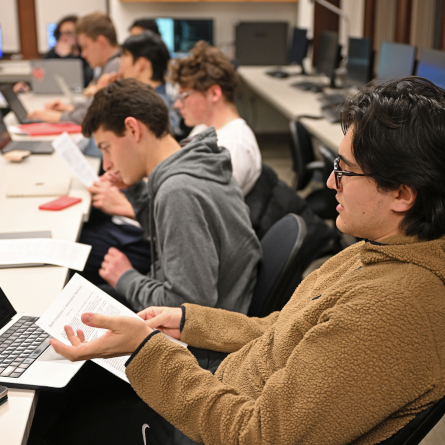
Chemistry professor Marc Zimmer believes new immigration restrictions put U.S. at a global disadvantage
Marc Zimmer has a deep appreciation for the importance of opening America’s borders for highly skilled scientific researchers and graduate students. Thirty years ago, Zimmer, who serves as the Jean C. Tempel ’65 Professor Chemistry at Conn, came to the U.S. from South Africa on an H-1B visa.
In an op-ed in The Connecticut Post, he writes that recent immigration measures enacted by the Trump Administration, which deny more than half a million visas for highly-skilled workers and scholars, will exacerbate America’s declining competitiveness in scientific and medical research and development, as it cedes dominance to other countries, most notably to China.
In the piece, Zimmer emphasizes the vital roles people from different countries and cultures play in advancing a strong and diverse national scientific community.
“In a disturbing trend, the National Science Foundation reports that the number of international graduate students coming to the United States dropped by 22,000 (5.5 percent) in 2017. The president’s proclamation will dramatically decrease this number, which does not bode well for U.S. science,” Zimmer writes.
“Not only do immigrants contribute to a high number of Nobel awards, but they also bring new ways of thinking to their research labs. ...They often bring an alternative and important perspective that a homogeneous scientific community cannot match. We need to attract and retain scientists from all nations, genders and creeds.”

